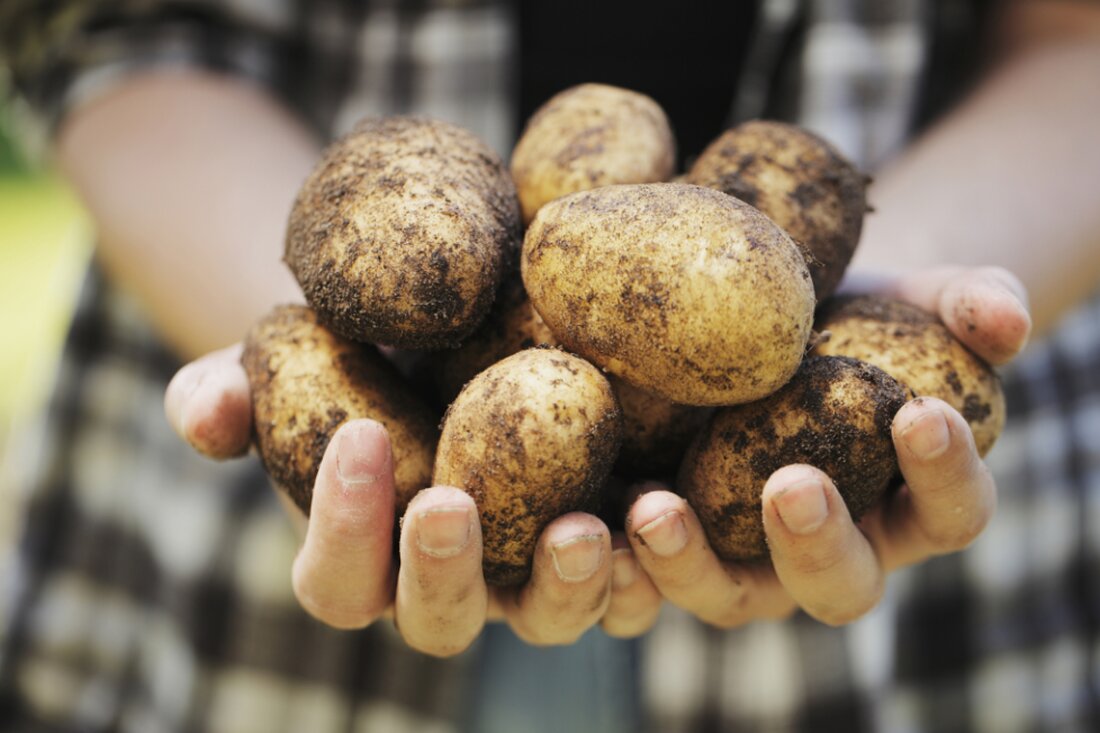Three Types of Genetically Modified Potatoes Have Been Approved by the FDA - What You Should Know About Them and How to Recognize Them
To the average consumer, GMO potatoes don't look all that different when sitting next to their organic counterparts. Although they may look identical, genetically modified foods can have unintended consequences and unknown effects on those who eat them. This is particularly concerning since the FDA approved three new GMO potatoes in 2017. This begs the question: Do you really know what you are eating? The company behind these technical potatoes guarantees consumers their safety. However, many scientists and organizations have problems with genetically modified foods for various reasons. Although they promise disease resistance and fewer brown spots, genetically modified potatoes may not be...

Three Types of Genetically Modified Potatoes Have Been Approved by the FDA - What You Should Know About Them and How to Recognize Them
To the average consumer, GMO potatoes don't look all that different when sitting next to their organic counterparts. Although they may look identical, genetically modified foods can have unintended consequences and unknown effects on those who eat them. This is particularly concerning since the FDA approved three new GMO potatoes in 2017. This begs the question: Do you really know what you are eating?
The company behind these technical potatoes guarantees consumers their safety. However, many scientists and organizations have problems with genetically modified foods for various reasons. Although they promise disease resistance and fewer brown spots, genetically modified potatoes may not be safe to eat. A doctor who once helped grow these potatoes is now speaking out against them.
The latest GMO potatoes
The Simplot Co. has been in the potato business for a long time. In the late 1920s, a young JR Simplot worked the soil in Idaho to grow potatoes. In the 1960s, Simplot was the first to develop a process for cooking French fries commercially. Many years later, the company has grown into a diverse billion-dollar company. In the mid-2010s they entered the GMO world with their innate line of engineered potatoes.
The newest GMO potatoes include the Russet Burbank, Ranger Russet and Atlantic varieties. Using gene editing technology, these tubers are engineered to have significantly less browning and less acrylamide – a potential carcinogen that is produced when potatoes are fried. They were also infused with anti-plague genes, a defense against the disease of the Irish famine of the 1840s. According to Simplot, these new potatoes have the same taste, texture and nutritional value as the non-GMO variety.
While Simplot says its goal is to reduce farmers' use of waste and fungicides, GMO products are still hotly debated. From ethical implications to a lack of real research on whether GMO foods are safe to eat, many are currently working to stop food tech from taking over the produce department. Interestingly, one criticism of Simplot's potatoes comes from a doctor who once spent years of his life working for the company.
The hidden dangers of technical foods
Dr. Caius Rommens is a botanist, biologist and geneticist. He helped Monsanto and JR Simplot develop thousands of different GMO potatoes for years. He developed the innate potatoes by thinking about turning off two genes in the potato to reduce browning and asparagine, the substance that can cause acrylamide when fried. In 2018, Dr. Rommens a book with the title Pandora's Potatoes: The Worst GMOs , to condemn the work he had done with Simplot.
Dr. Rommens notes a variety of problems with these new potatoes. First, editing their genes results in genetically unstable traits. Furthermore, their lack of tanning is actually a danger, not an advantage. They still have bruises like potatoes, but don't show the darker color that suggests that. These hidden bruises could be a source of toxicity, although consumers would have no idea. Infections that are normally visible through discoloration go undetected, meaning bacteria and fungi can thrive undetected.
While Simplot states that their potatoes produce fewer carcinogens when fried, the acrylamide content in French fries is already very low. For acrylamide to be carcinogenic, the levels would have to be 1,000 to 10,000 times higher than in frying. So yes, while the modified potatoes produce less acrylamide, this is not a health problem to begin with.
Dr. Rommens worries that the FDA and other regulators aren't really taking the risks into account. As a biologist, he advises not to consume these potatoes. It's safer to eat additional organic varieties that have been grown and eaten for thousands of years. While they may tan faster, they are just following their natural biological process. This helps people make smart decisions about what is safe and unsafe to eat - something GMO varieties cannot promise.

 Suche
Suche
 Mein Konto
Mein Konto
